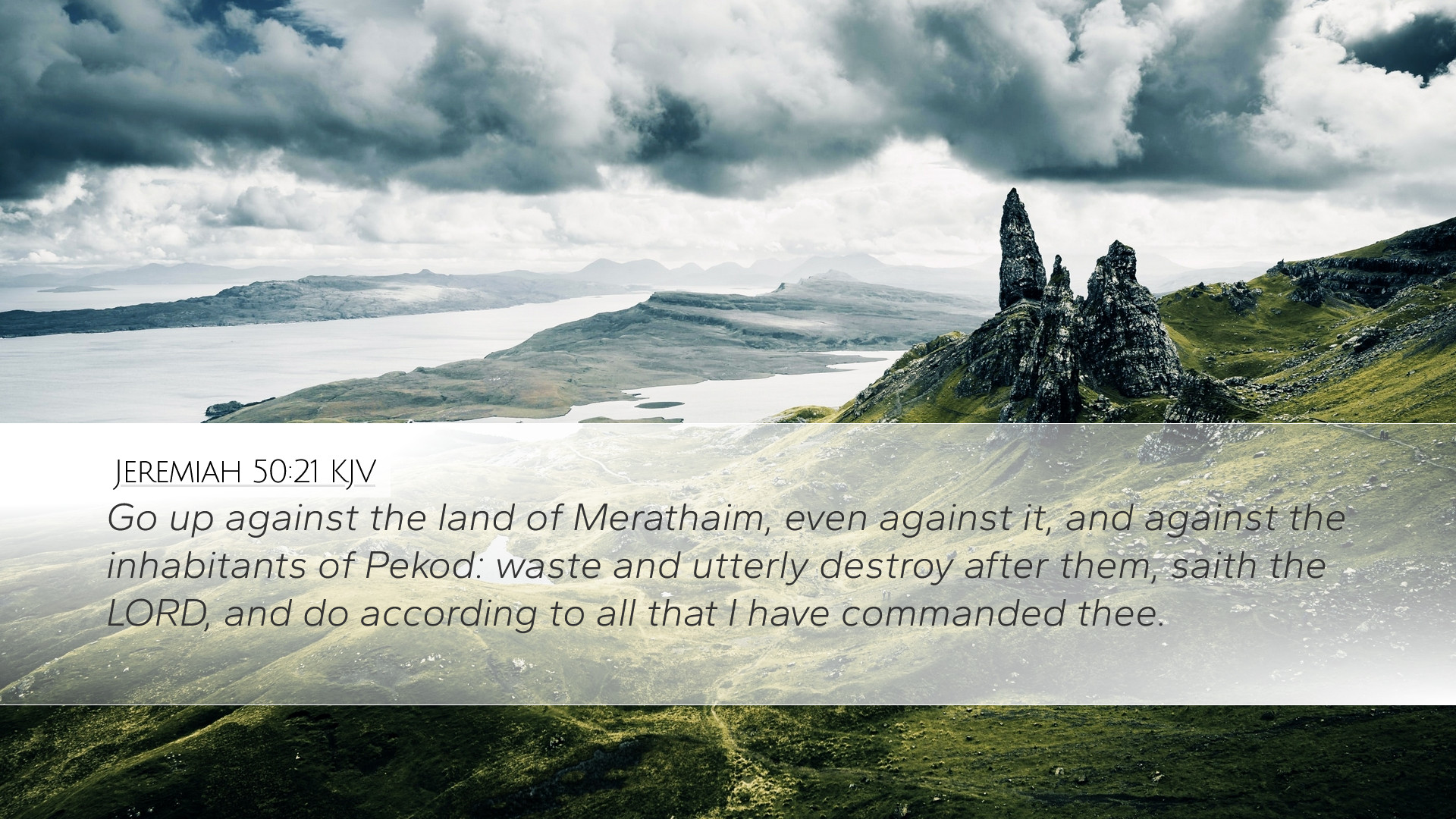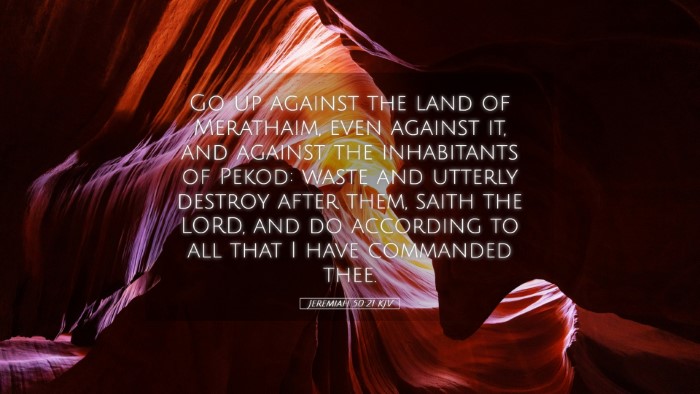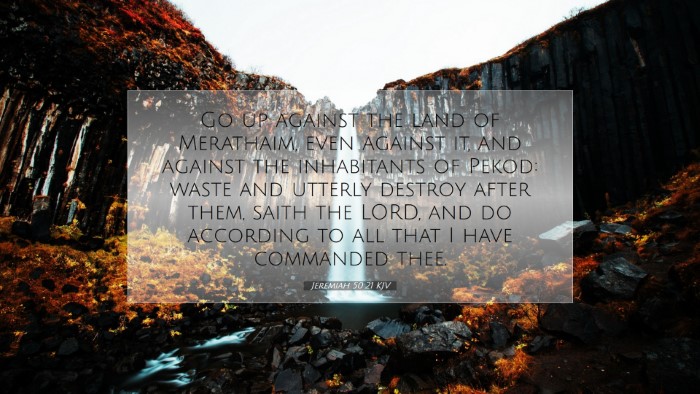Commentary on Jeremiah 50:21
Verse: "Go up against the land of Merathaim, even against it, and against the inhabitants of Pekod: waste and utterly destroy after them, saith the Lord; and do according to all that I have commanded thee."
Contextual Overview
The verse occurs in the midst of a prophecy against Babylon, particularly in the broader context of Jeremiah's messages concerning the fate of various nations. Babylon, a dominant power at the time, symbolizes pride, idolatry, and oppression. The names Merathaim and Pekod have been interpreted by scholars, suggesting meanings associated with double rebellion and a place of punishment, respectively, insinuating a divine judgment coming upon Babylon for its multitude of sins.
Exegesis of Key Terms
- Merathaim: Often seen as a poetic expression signifying 'a double rebellion'. This name may imply that Babylon's sins are not just one-dimensional; it represents a compounded evil and transgressions against God.
- Pekod: Typically interpreted as a 'punishing' or 'avenging' region, the term in the context suggests that judgment will commence here, leading ultimately to destruction.
The Call to Judgment
Divine Command: The phrase "saith the Lord" emphasizes the authoritative voice of God commanding action against Babylon. This presents an imperative for obedience to God’s directives against a nation that has become emblematic of ungodliness. The command not only signifies judgment but also establishes God’s sovereignty over nations.
Commentary Insights
Matthew Henry: Henry notes that this verse calls for God's people to take an active role in the war against Babylon and its wickedness. The inhabitants of Merathaim and Pekod are seen as typical manifestations of rebellion against God’s righteousness. Henry emphasizes that God's judgment is both severe and necessary, serving as a warning to others who follow in sin.
Albert Barnes: Barnes elucidates the geographical implications of the commands and denotes that the instruction entails a thorough and comprehensive obliteration of paganism associated with Babylon. He remarks that such actions can serve as drastic measures against idolatry and immoral practices that had infiltrated the chosen people's midst. He views this as a solemn reminder of the consequences of collective sin.
Adam Clarke: Clarke takes a deep dive into the symbolic meanings behind Merathaim and Pekod. He aligns these terms with spiritual implications, suggesting that the command to "waste and utterly destroy" symbolizes a rejection of old ways and a call to purification. Clarke sees an inherent prophetic warning about the ultimate destruction of anything set against God's holiness.
Theological Significance
- God’s Justice: This passage reiterates the core theological principle that God is just and will execute judgment upon nations that transgress His laws. It demonstrates that divine justice is not arbitrary but firmly rooted in righteousness.
- Human Responsibilities: There is a dual call to action reflected in this command. The believer is encouraged to reject sin individually and collectively, recognizing the weight of their responsibility in maintaining faithfulness to God amidst a corrupt environment.
- Hope Amidst Judgment: Although this prophecy speaks of destruction, it holds a thread of hope—the eradication of evil paves the way for God's redemptive plan. The destruction of Babylon signifies the eventual triumph of good over evil.
Practical Applications for Modern Believers
For pastors and theologians, Jeremiah 50:21 provides both a sobering reminder of God’s holiness and an encouraging undertone of His redemptive power. The practices and systems in place today that parallel the sins of Babylon require discernment, and just as the Lord commanded action against sin, believers must remain vigilant in their faith and practices.
- Call to Holiness: Just like the inhabitants of Babylon were called to destruction for their sins, contemporary believers must strive for holiness in an increasingly secular world.
- Rejecting Idolatry: In a society rife with modern idols—materialism, self-promotion, and moral relativism—this verse serves as a reminder to prioritize God above all else.
- Active Participation: This scripture implores believers to engage actively—not passively—in the spiritual battle against the forces of evil present within society.
Conclusion
Jeremiah 50:21 encapsulates profound themes of judgment and divine authority. Within its lines lies a rich tapestry woven from the insights of historical commentators like Matthew Henry, Albert Barnes, and Adam Clarke, who elevate its meaning beyond mere ancient prophecy to a living word. The church today is challenged to examine its standing before God and respond appropriately to His call for righteousness, amid the continuing narrative of redemption that God orchestrates through His Sovereign will.


